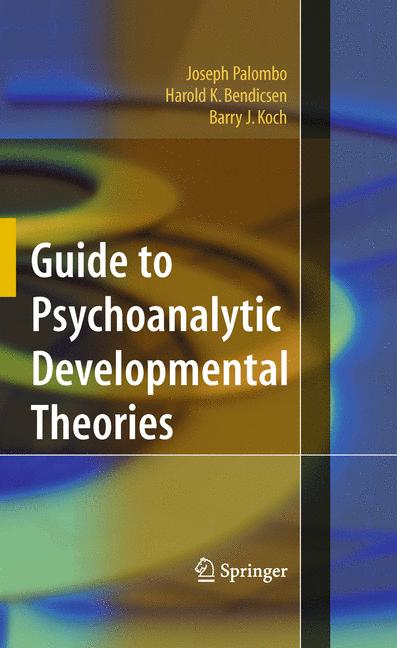Details
| Autor | Palombo, Joseph; Bendicsen, Harold K.; Koch, Barry J. |
|---|---|
| Verlag | Springer US |
| Auflage/ Erscheinungsjahr | 09.06.2009 |
| Format | 22,9 × 15,2 cm |
| Einbandart/ Medium/ Ausstattung | Hardcover |
| Seiten/ Spieldauer | XLVIII, 416 Seiten |
| Abbildungen | Bibliographie |
| Gewicht | 1820 |
| ISBN | 9780387884547 |
Zu diesem Buch
The profound influence of psychoanalytic theories of development still resonates in the thinking and practice of today's mental health professionals. This guide provides a succinct and reliable overview of what these theories are and where they came from.
As the foundational theory of modern psychological practice, psychoanalysis and its attendant assumptions, predominated well through most of the twentieth century. The influence of psychoanalytic theories of development was profound and still resonates in the thinking and practice of today’s mental health professionals. Guide to Psychoanalytic Developmental Theories provides a succinct and reliable overview of what these theories are and where they came from. Ably combining theory, history, and biography it summarizes the theories of Freud and his successors against the broader evolution of analytic developmental theory itself, giving readers a deeper understanding of this history, and of their own theoretical stance and choices of interventions. Along the way, the authors discuss criteria for evaluating developmental theories, trace persistent methodological concerns, and shed intriguing light on what was considered normative child and adolescent behavior in earlier eras.
Each major paradigm is represented by its most prominent figures such as Freud’s drive theory, Erikson’s life cycle theory, Bowlby’s attachment theory, and Fonagy’s neuropsychological attachment theory.
Pressestimmen
»The Guide is a respectful and loving homage to a century of great minds struggling to understand the complex problem of psychological development. The inclusion of attachment theory and their modern expressions in the work of Schore and Fonagy distinguish this book from others, adding the brain to the mind, and bringing us up to the present day.« (Louis Cozolino, Ph.D. Professor of Psychology, Pepperdine University, CA)
Die Autoren
Joseph Palombo is the Founding Dean of the Institute for Clinical Social Work in Chicago, a staff member and founder of the Rush Neurobehavioral Center, and a faculty member of the Child and Adolescent Psychotherapy Program of the Chicago Institute for Psychoanalysis. Well-known as an author who has published numerous papers on a variety of topics related to the diagnosis and treatment of psychological conditions, he has specialized in the area of the effects of learning disabilities of development. He has published two books: Learning disorders and disorders of the self in children and adolescents and Nonverbal learning disabilities: A clinical perspective.
Harold K. Bendicsen has an advanced degree from the Child and Adolescent Psychotherapy Program of the Chicago Institute for Psychoanalysis and is currently a faculty member of that program. He is an adjunct faculty member at the Loyola University Chicago School of Social Work. He was the director of a child welfare agency and of an agency that provided services to adolescents and young adults. He has been a consultant to many facilities that provide services to children and adolescents and is in private practice.
Barry J. Koch, Ph.D., is an Assistant Professor and Field Coordinator for Newman University’s Master of Social Work (MSW) program in Colorado Springs where he teaches courses in advanced clinical practice, psychopathology, human development, and social policy. He received his PhD in Chicago from the Institute for Clinical Social Work in 2004. Dr. Koch has taught undergraduate and graduate students. He has been the director of a crisis intervention center and has many years of clinical practice experience treating a wide variety of mental health conditions.
Kaufoption
181,89 €

Kommentare
Schreiben Sie den ersten Kommentar!
Neuer Kommentar
Bitte beachten Sie vor Nutzung unserer Kommentarfunktion auch die Datenschutzerklärung.